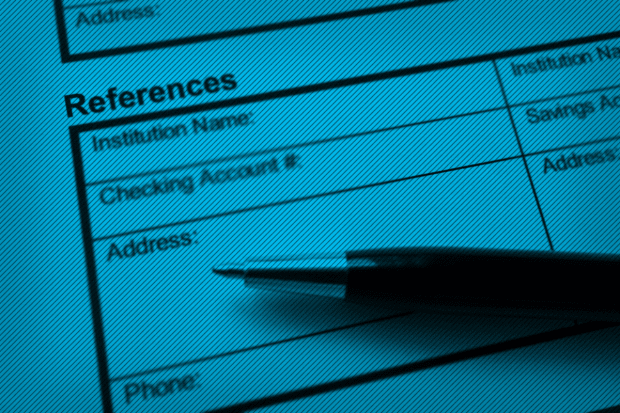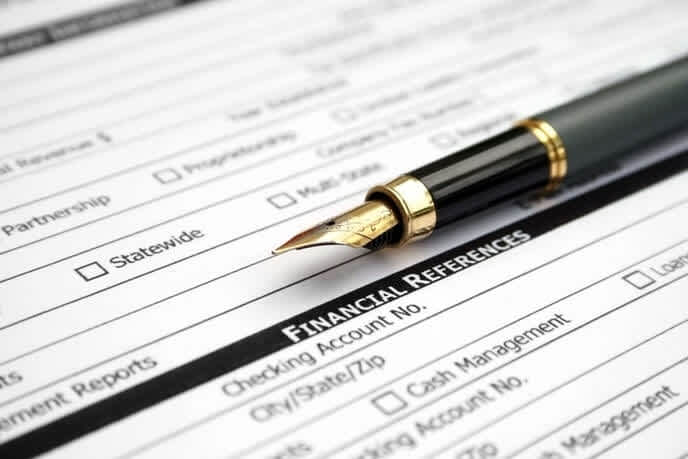Denied Because of Insufficient Credit References
Nov 08, 2023 By Triston Martin
If your application is declined, the creditor has to provide a written notice to inform you of the reason for your application being rejected. Also, references to your credit are not sufficient. This will be mentioned in the letter if this is among the reasons. This notice of adverse action should arrive in the mail within between a week and ten days after the date your application has been rejected.
You might be denied credit for numerous reasons, one of which is "insufficient number of credit references." This means you do not have sufficient credits on your report to meet the lender's requirements. This could also be referred to as a "thin credit file" or "limited credit history."
Different lenders and creditors have different criteria for the number of credit accounts you require to consider approving your application. Some will approve you with no credit accounts (or references); however, some may require at least three. It can be denied because of insufficient credit accounts, even if you have a fairly good credit score. But you're unlikely to have a great credit score with just one or two credit accounts on your report.
What to Do Next
The adverse action notice you get will also include directions to request a version of the credit score used to make the decision. You'll have up to 60 days to request a copy of the credit report. Be sure to get the report to check that all of your active, open credit accounts are reported in a timely manner. A look at your credit report will show the number of credit accounts that are listed on the credit report.
If you're denied due to an insufficient amount of credit reference, you'll require more credit accounts with positive scores in your credit file before that institution accepts you. Because lenders' requirements differ and requirements vary, you could be accepted at different credit card issuers despite having the same amount of credit accounts listed on your credit report. You might want to consider negotiating with different lenders.
Make sure you don't make an application for more credit cards simultaneously to try to increase the number of accounts on your credit history. It may have negative consequences and make it harder to be approved, for the moment at least. The lenders consider it risky when an applicant has multiple new accounts open within a few days. But, if you handle these accounts properly and pay them on time, your accounts on your credit file could benefit you.
To increase your credit score, if you have a weak credit history, you can consider a credit card for retail or a secured credit card that will require a deposit. Making yourself an approved user by opening joint accounts or submitting the help of a co-signer are all ways to build your credit score to get a credit card on your own.

Is An Insufficient Credit Score The Same Thing As Having Bad Credit?
If lenders reject you for credit applications due to the lack of credit history, it could appear that having no or restricted credit means the same as having unsatisfactory credit. This isn't the case. Insufficient credit and credit score are separate things. Imagine the situation this way: your credit score is the report of how well you handle your credit card debt.
- A thin or insufficient credit score makes it difficult for lenders to determine your creditworthiness (meaning that you don't have a sufficient credit history).
- The long-term record of negative information, however, provides lenders with solid proof that you aren't able to pay your obligations (meaning that you have poor credit).
What Can A Credit Score Do For Consumers?
Whatever age and where on your credit-building process, a lender will typically rely on your credit score to determine whether they will allow you to apply for an account with a credit or loan. A credit score of three digits -generally between 300 and 850 is the standard for determining whether you're eligible for credit cards or loans.
The higher your score, the higher your chance of getting granted credit and receiving a favorable interest rate. In general, a great credit rating is 700 or over. Insurance companies also utilize credit scores in the decision-making process to determine insurance costs.

Various credit-scoring models consider aspects like whether you make payments on time, how many accounts you've got, the total of your outstanding balances, and the amount of time you've been a creditor. If your credit report contains data that cannot be verified, for example, the date of your birth and Social Security number -- or most likely, it shows you've only had credit for one or two months, or none ever or never at all.
The scoring system may declare your credit report as "insufficient" and not generate scores for credit, credit experts claim. In simple terms, the credit card issuer or any other financial institution does not have enough information to judge your capacity to pay back the loan, regardless of whether it's an auto credit or credit card.

Know-how
All About Medicare Cover Cataract Surgery
Medicare Advantage plans offer a wide range of coverage and prices for cataract surgery. Get in touch with a provider's customer support department for an estimate of costs before deciding to go through with the operation
Learn More
Banking
Balance Transfers Advantages and Disadvantages
It's possible that transferring a balance from a credit card with a higher interest rate to one with a lower interest rate can help you save money and pay off debt more quickly.
Learn More
FinTech
PayNearMe and PayPal Integration Grows for Merchants
Explore the expanded PayNearMe and PayPal integration that boosts transactions and convenience for merchants.
Learn More
Banking
Should You Get an Axos Bank Personal Loan in 2024? Everything You Need to Know
Read our comprehensive review of Axos Bank personal loans for 2024, covering features, benefits, pricing, pros and cons, and whether it’s worth it for you
Learn More
Know-how
Lincoln Heritage Life Insurance
There are other firms than Lincoln Heritage that provide last expenditure insurance policies, and these other companies have superior ratings for their financial soundness, fewer complaints filed with the NAIC, and the ability to get quotations and file claims online
Learn More
Know-how
Is Monument Traders Alliance Worth Your Time? A Comprehensive Review for 2024
Explore Monument Traders Alliance, a trading platform offering tailored resources and community support for all levels, enhancing your trading experience and knowledge.
Learn More